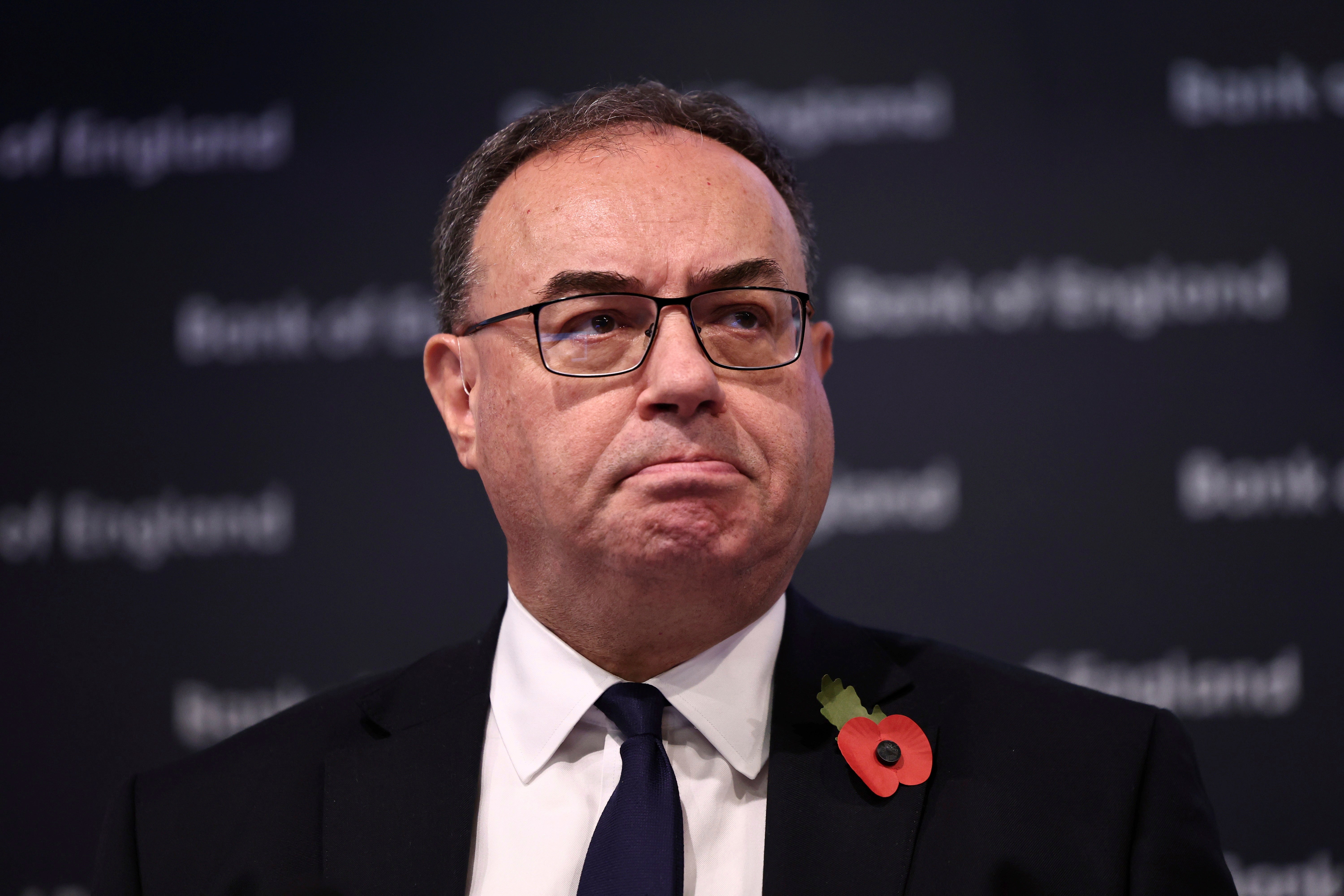The Bank of England has held interest rates again – don’t expect them to fall quickly
Borrowers will face a tough 12 months, believes James Moore, with those hoping for a swift fall in base rates set to be disappointed


For Britain’s battered borrowers, the good news is that the Bank of England’s rate-setting Monetary Policy Committee (MPC) has decided to hold interest rates at 5.25 per cent.
The vote in favour of doing so solidified too, to 6-3 from 5-4. Significantly, the Bank’s in-house MPC members (the committee is made up of both Bank of England staff and external members) once again voted as a bloc, having previously been split during the last vote.
The rate hawks calling for a rise to 5.5 per cent were all external members: Jonathan Haskel, the recently appointed Megan Greene and Catherine Mann, the leading proponent of hard medicine for Britain’s overheated prices.
However, while mortgage rates have eased lately, those hoping for a rapid fall in base rates starting next year are likely to be disappointed. The Bank has warned that its “latest projections indicate that monetary policy is likely to need to be restrictive for an extended period of time”. It has also once again voiced fears that the risks to its inflation forecasts remain “to the upside” with a warning that further rate rises “would be required if there were evidence of more persistent inflationary pressures”.
Even if those don’t emerge, rates are expected to remain at “around” 5.25 until the second half of 2024 and the decline will be slow after that. They are still expected to be at 4.25 per cent by the end of 2026.
Paul Dales at research group Capital Economics noted that phrase “extended period of time”, pointing out that the MPC has not used the phrase before. “So there’s no precedent on how long it means,” he said. “Governor Bailey also said in a separate statement released today that ‘it is much too early to be thinking about rate cuts’.”
Cheap money? We’re done with that.
The bad news for the government – as it rolls towards an election – is that this is increasingly putting the squeeze on the economy. The Bank’s assessment is bleak. UK plc is expected to finish 2023 flat, which is weaker than it thought as recently as August.
A dismal 0.1 per cent growth is expected for the final quarter of the year, also weaker than had been expected. Some business surveys are suggesting it may be worse still. Meanwhile, the number of job vacancies has fallen and the labour market is getting softer.
Dales thinks the economy will be “weaker than the Bank expects over the next six months” and warns that “a mild recession may already be underway”. Even if he is wrong about that, we shouldn’t expect any dynamism from the economy any time soon.
Particularly worrying is that while business investment is projected to increase by just under 7 per cent this year, the Bank fears that it will fall by 1 per cent in 2024, before flatlining in 2025.
Britain has a long-standing problem when it comes to both private and public sector investment. It is this, more than anything else, that is holding the economy back. Take note of chancellor Jeremy Hunt’s statement on the back of the MPC’s decision. He said: “The autumn statement will set out how we will boost economic growth by unlocking private investment, getting more Brits back to work, and delivering a more productive British state.”
Is that a hint of business tax cuts to come? The chancellor is under pressure to help out with tax breaks for investment. Critics point out that simply cutting headline rates of business tax in the past has failed to stimulate investment, instead ending up in shareholders’ pockets. That is not what the economy currently needs. The Bank is concerned about businesses indulging in “greedflation” – taking the opportunity of rising prices to boost margins. The MPC mentioned this again.
For the sake of UK plc, any fiscal concessions should really be offered to reward firms prepared to undertake the investment the economy needs.
Things look brighter when it comes to the price rises that have cut into living standards. Inflation is expected to fall “markedly” in October to 4.8 per cent, largely reflecting a reduction in the Ofgem energy price cap. But a fall is still a fall. Meanwhile, food price inflation, which has exerted a terrible toll on low-income Britons, is also expected to decline: first to around 9 per cent in the fourth quarter and then to around 5 per cent in the first part of 2024.
While the Bank continues to fret about the elevated price of services – remember the service sector is dominant in Britain – it sees wage growth falling as unemployment rises. This should start to ease the inflationary pressure.
If the Bank is correct, that should keep the MPC’s finger off the interest rate trigger. But be warned: a possible pre-election tax cut will be seen as an inflationary measure, which could keep rates higher for longer. Next year is shaping up to be a tough one whichever way you look at it.






Join our commenting forum
Join thought-provoking conversations, follow other Independent readers and see their replies
Comments